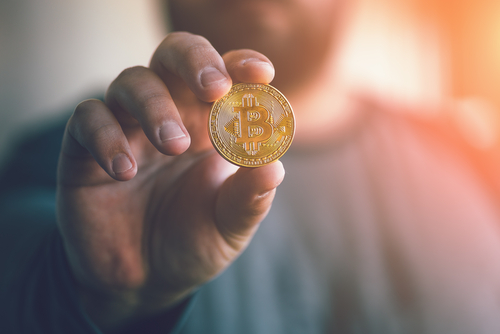At the height of their popularity, cryptocurrencies were the go-to investment for trendy millennials. They have since stood the test of time, and many consider this a healthy investment choice.
So how do cryptocurrencies hold up against inflation? Does it make more sense to invest in these than a savings account? We find out how cryptocurrencies are performing.
Tip: For a more traditional investment, you might consider a unit trust.
Understanding what cryptocurrencies are
Cryptocurrencies, such as Bitcoin, soared in popularity after they were introduced in the famous white paper, A Peer-to-Peer Electronic Cash System, published in 2009 by an internet user with the pseudo name Satoshi Nakamoto.
According to Daniel Kibel, founder and director of CM Trading, cryptocurrencies are digital currencies that ascribe a coin ownership which is stored on a ledger using strong cryptography, or codes.
“They’re like physical currencies, except for the fact that they’re not maintained by a central authority, such as a central bank. For this reason, they’re considered a riskier investment,” says Kibel.
READ MORE: Cryptocurrencies are exploited without regulation
“They’ve garnered popularity in the last five years, and they’re slowly making inroads to being prevalent enough to be used in daily transactions. To accommodate this, there are various cryptocurrency online exchangers that exchange hard currency for cryptocurrencies,” he explains.
In terms of their value, Kibel says they have become enough of a player to be traded on various exchanges, just as one would expect any hard currency to be traded.
How popular are cryptocurrencies today?
According to Marius Reitz, Luno’s general manager for Africa, there are almost 7,000 cryptocurrencies worldwide – but Bitcoin is the most popular.
“Bitcoin is the largest cryptocurrency by market capitalisation, and is valued at $298 billion (over R4 trillion) at the moment. It’s also the most well-known. Bitcoin can be seen as a store of value. Like gold, there is a limited supply of Bitcoin,” says Reitz.
Kibel says that, in spite of this, most people don’t understand cryptocurrencies and they’re being cautious until the inconvenience of not using them is greater than the struggle to learn how to use them.
“People are shunning them just as they did the internet, when older folks who were less tech-savvy shied away until they had no choice but to adopt the new norm,” he explains.
Kibel adds that many of the big high-tech companies have already begun the process of adopting their own cryptocurrencies, including Facebook, Amazon, and Apple. This is making many lawmakers nervous.
“Currencies need to be stable; they need to be transparent and provide confidence so that people will accept the new form of currency. The fact that cryptocurrencies are the future is a given, the only questions are, to what capacity, and how,” says Kibel.
How do they perform compared to other investments?
Although Reitz stresses that Luno does not provide financial advice, he believes the short-term fluctuation of cryptocurrencies is an important mechanism to drive large-scale adoption in the long run.
“Nobody can predict the future price of any asset, including cryptocurrencies,” says Reitz.
“However, the price is one indicator of how the technology is developing, whether infrastructure is improving, whether merchant adoption rates are rising, how regulatory improvements and guidelines are changing, and the participation of other institutions,” says Reitz.
He points out some telling trends in the cryptocurrency market:
- JPMorgan recently highlighted evidence of institutional demand for Bitcoin, and investors moving from gold exchange-traded funds to cryptocurrency.
- Listed companies are moving to Bitcoin as their principal holdings in their treasury reserve strategies. A recent example is the NASDAQ-listed MicroStrategy, which took its holdings to around $425 million (over R6 billion) earlier this year.
“Bitcoin has been resilient during the global economic downturn following Covid-19. Just after the March crash, there was some doubt about cryptocurrency from the traditional finance sector, but Bitcoin has shown itself to be resilient in its first global crisis,” says Reitz.
Does cryptocurrency grow above inflation?
He explains that the price of Bitcoin works in the same way as it would with other currencies or objects – it’s based on supply and demand.
“The price of a currency or Bitcoin boils down to the price a buyer and seller agree upon. A key differentiator of Bitcoin though, is that there is a finite supply. Once the 21 million in existence are in circulation, Bitcoin cannot be reproduced, nor can more currency be printed as with hard currency. Over 18.5 million have been mined to date,” says Reitz.
Just like investing in shares on the stock exchange, Reitz says that ideally you buy Bitcoin at one price and then sell it at a higher price.
“You can expect lots of spikes and troughs, but the price is on an upward trajectory despite all the ups and downs over the past few years. You are in control and make your own decision about whether you’d like to wait for a higher price or at which point you want to sell,” says Reitz.
He says that if you’re buying cryptocurrency as a long-term investment, you can now earn interest of up to 4% on your Bitcoin holdings through Luno’s savings wallet.
It was reported that inflation in South Africa stood at 3% in September 2020. This means that the above example of a Bitcoin wallet will grow above the rate of inflation. However, note that not all cryptocurrencies grow at the same rate and that, like any other investment, it comes with risk.
Be sure to speak with a qualified financial adviser before you make any long-term investment choices. If you don’t have a financial adviser yet, find out how to find one you can trust today by reading this article.
If you’re earning enough to invest, you should make sure you have retirement savings as well.

